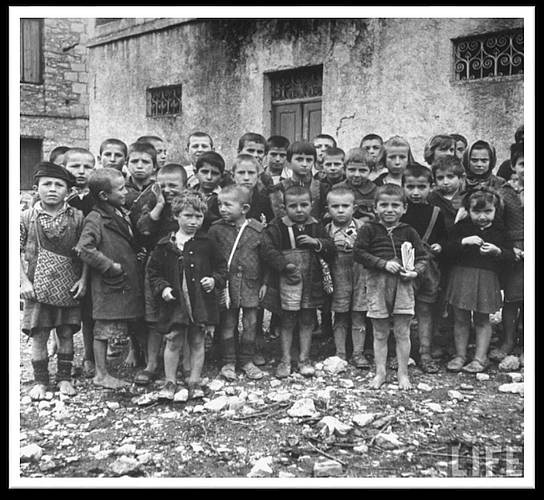Eventlist
Event

- Title:
- Open Lecture: The Greek civil war and child migration to Australia
- When:
- 10.10.2014 19.00 h
- Where:
- The Ithacan Philanthropic Society - Melbourne
- Category:
- Education
Description
Location: Ithacan Philanthropic Society, L.2, 329 Elizabeth Street.
Date: FRIDAY 10 October 2014, 7:00pm
Presenter: Professor Joy Damousi
Entry: Free
Synopsis
The Greek Civil War (1946-1949) created conditions whereby children were removed from their homes out of war zones and into neighbouring Eastern European countries.
The result was that approximately 28,000 children crossed the borders in Eastern European countries during the course of the Civil War. Children travelled to a number of countries which included Romania, Yugoslavia, Czechoslovakia, Poland and Hungary.
Australia was a key participant in the United Nations at this time and actively engaged with this issue in order to reunite children with their parents, many of whom had migrated to Australia after the war.
This lecture will explore the history of child removal to Australia during the Greek Civil War by developing two distinctive perspectives. First, it focuses the discussion of this issue beyond the debates and disputes between nations at forums such as the United Nations, and instead concentrates on efforts at the national level to arrange for children to be reunited with their parents.
It analyses the migration of children to Australia for the first time, which is an important but under-researched aspect of the history of the paidomazoma. Australia was the first country to arrange for children to be reunited with their parents. How did this happen? What arguments did Australian authorities put forward to orchestrate that children be reunited with their parents at the end of the Civil War?
Second, it argues that there is a need to recognize the efforts and tactics of the Australian Council of International Social Service and its director, Aileen Fitzpatrick, in the successful migration of children to Australia. Fitzpatrick played a pivotal role in moving debates about the fate of these children beyond Cold War politics and in so doing, she and her agency promoted internationalism and a global community united by humanitarian efforts and transnational exchange.
Her crusade to unite children with their families is positioned within an alternative history of the 1950s, which privileges transnational organizations that upheld international co-operation rather than those that promoted Cold War tensions. This lecture will explore the nature of Australian internationalism during the 1940s through this case.
Bio
Joy Damousi is Professor of History at the University of Melbourne.
She has recently been awarded an ARC Kathleen Fitzpatrick Laureate Fellowship for which she will be exploring the history of child refugees in Australia from 1920 to the present. This paper is from her forthcoming book, Greek War Stories to be published by Cambridge University Press, in which she explores the memories of war by immigrants from Greece to Australia in post-war Australia.
Sponsors
We would like to thank Betty Messazos, Konstantinos & Anastasia Kostas for sponsoring this lecture. Such initiatives assist us in providing these lectures free to the public. If you would like to participate as a sponsor from as little as $100 please send us an email: This e-mail address is being protected from spambots. You need JavaScript enabled to view it
We would also like to thank our corporate sponsor:

Venue
- Venue:
- The Ithacan Philanthropic Society - Website
- Street:
- Level 2, 329 Elizabeth Street
- Postcode:
- 3000
- Suburb:
- Melbourne
- State:
- VIC
- Country:
-

In October 1916, the Ithacan migrants of Melbourne established the ITHACAN PHILANTHROPIC SOCIETY "The Ulysses", with an inaugural membership of some 153 members. This was in response to pleas for aid from their loved ones in Ithaca who were suffering deprivation during the First World War.
Over the years, however, the Society has been much more than just a philanthropic institution. It has been a constant in the lives of the early Ithacan migrants replacing the homeland which they had left.
The Society takes an active role in the cultural, social, educational and quality of life interests of the Ithacan Community. The Society, as part of its philanthropic role, also makes many monetary contributions to worthy causes, including those outside the immediate Ithacan community. The Society celebrated its 90th Anniversary in 2006.
EventList powered by schlu.net

